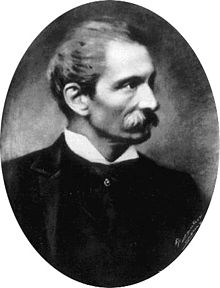You can help expand this article with text translated from the corresponding article in Italian. (December 2023) Click [show] for important translation instructions.
|
Giuseppe Zanardelli | |
|---|---|
 | |
| Prime Minister of Italy | |
| In office 15 February 1901 – 3 November 1903 | |
| Monarch | Victor Emmanuel III |
| Preceded by | Giuseppe Saracco |
| Succeeded by | Giovanni Giolitti |
| President of the Italian Chamber of Deputies | |
| In office 16 November 1898 – 25 May 1899 | |
| Preceded by | Giuseppe Branchieri |
| Succeeded by | Luigi Chinaglia |
| In office 5 April 1897 – 14 December 1897 | |
| Preceded by | Tommaso Villa |
| Succeeded by | Giuseppe Branchieri |
| In office 23 November 1892 – 20 February 1894 | |
| Preceded by | Giuseppe Branchieri |
| Succeeded by | Giuseppe Branchieri |
| Minister of the Interior | |
| In office 21 June 1903 – 2 November 1903 | |
| Prime Minister | Giovanni Giolitti |
| Preceded by | Giovanni Giolitti |
| Succeeded by | Giovanni Giolitti |
| In office 28 March 1878 – 19 December 1878 | |
| Prime Minister | Benedetto Cairoli |
| Preceded by | Agostino Depretis |
| Succeeded by | Agostino Depretis |
| Minister of Justice | |
| In office 29 May 1881 – 25 May 1883 | |
| Prime Minister | Agostino Depretis |
| Preceded by | Tommaso Villa |
| Succeeded by | Bernardino Giannuzzi-Savelli |
| In office 4 April 1887 – 6 February 1891 | |
| Prime Minister | Francesco Crispi |
| Preceded by | Diego Tajani |
| Succeeded by | Luigi Ferraris |
| In office 14 December 1897 – 1 June 1898 | |
| Prime Minister | Antonio Starabba |
| Preceded by | Emanuele Gianturco |
| Succeeded by | Teodorico Bonacci |
| Personal details | |
| Born | 29 October 1826 Brescia, Kingdom of Lombardy–Venetia |
| Died | 26 December 1903 (aged 77) Maderno, Kingdom of Italy |
| Nationality | Italian |
| Political party | Historical Left Dissident Left |
Giuseppe Zanardelli (29 October 1826 – 26 December 1903) was an Italian jurist and political figure. He served as the Prime Minister of Italy from 15 February 1901 to 3 November 1903. An eloquent orator, he was also a Grand Master freemason. Zanardelli, representing the bourgeoisie from Lombardy, personified the classical 19th-century liberalism, committed to suffrage expansion, anticlericalism, civil liberties, free trade and laissez-faire economics.[1] Throughout his long political career, he was among the most ardent advocates of freedom of conscience and divorce.[2]